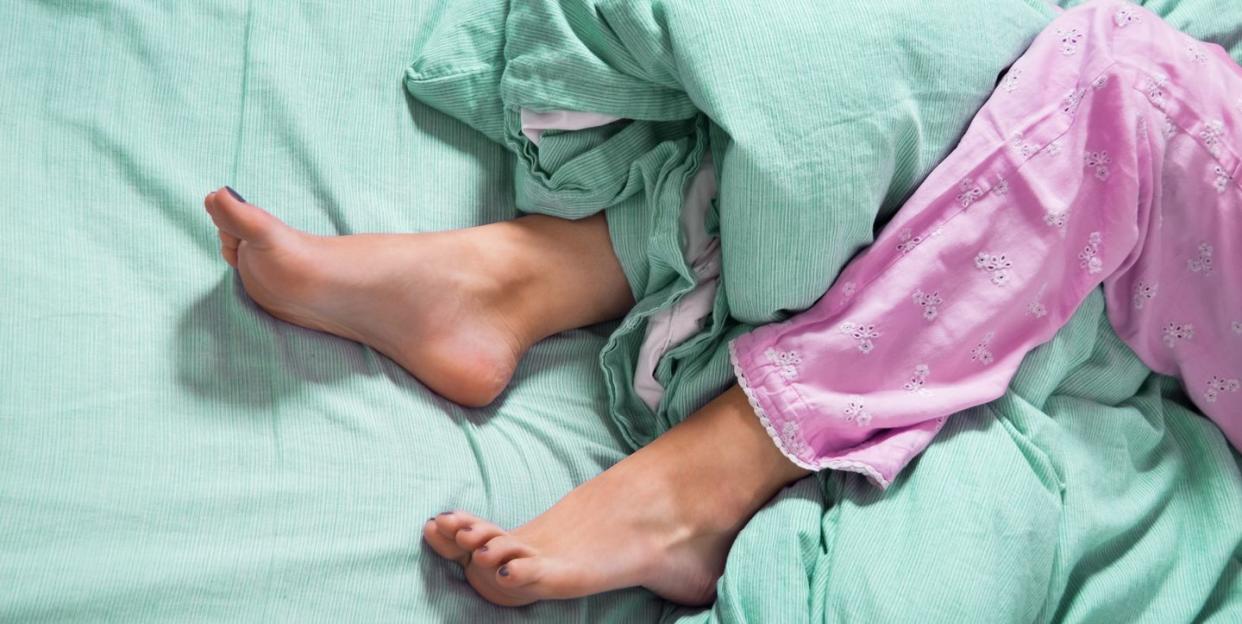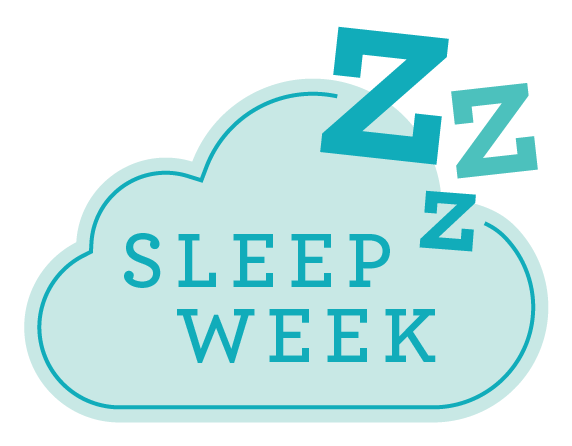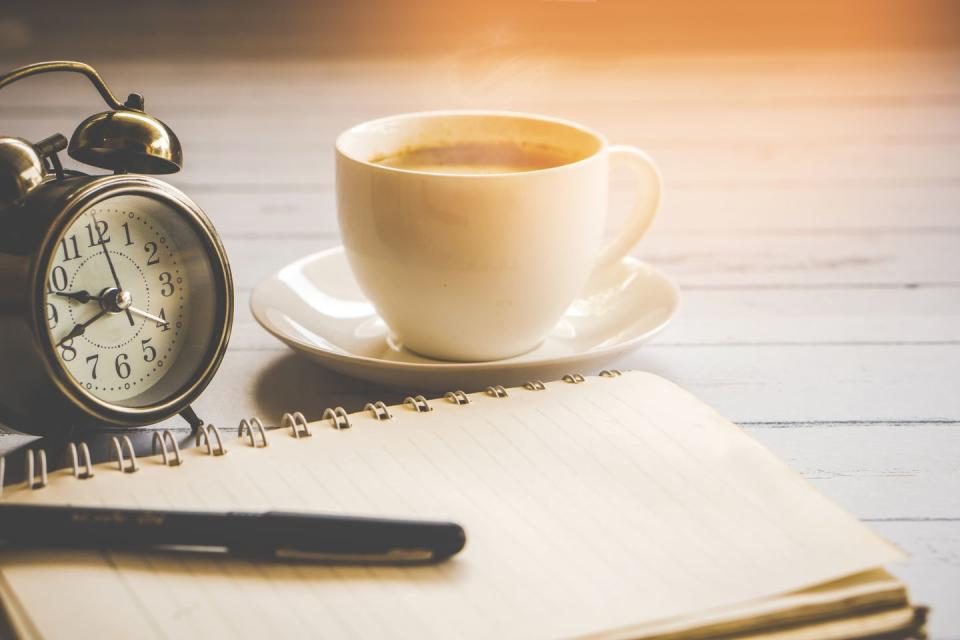Reading in Bed Can Make It Harder to Fall Asleep, According to Sleep Specialists

"Hearst Magazines and Yahoo may earn commission or revenue on some items through the links below."

Lying in bed freaking out because you can't fall asleep is the worst. It's also a very common problem that board-certified sleep physicians help patients with on a regular basis.
On top of feeling frustrating, staring at the clock and worrying about getting enough sleep can become a self-fulfilling prophecy since doing so can actually raise your stress hormones, further keeping you awake, says Ilene Rosen, M.D., a board-certified sleep physician at Penn Medicine. "It's almost like performance anxiety for sleep," she explains.
So, how can you stop the cycle and get some much-needed shut-eye? First, realize that it's okay if it takes you more than five minutes to fall asleep. "Most people would be surprised to learn that 15-30 minutes is considered normal," says Rosen. "You don't just lie down and then the sleep switch turns on."
In fact, how likely you are to fall asleep at any given moment depends on two components: your circadian drive for wakefulness (a.k.a. your "internal clock") and your homeostatic sleep drive, Dr. Rosen explains. The internal clock determines how awake you feel, and everyone's follows the same general pattern: Alertness rises during the day, dips slightly in the afternoon, and goes back up again around 7 p.m. It then takes another downward turn at around 10 p.m. or 11 p.m. when most people go to bed, and declines further while we're sleeping.
But while this circadian drive for wakefulness stays the same every day, your homeostatic sleep drive depends on how many ZZZ's you've gotten recently. It's what makes you feel especially tired after a night of tossing or turning, or more refreshed after a solid eight hours.
If you do drift off as soon as your head hits the pillow, that's a sign that you may be sleep deprived, adds Rosen. On the flip side, if it takes you more than 30 minutes to fall asleep on a regular basis, you may meet the criteria for chronic insomnia (more on that below).
The good news is there are several tricks you can employ — at night and during the day — to enter dreamland sooner. Here's exactly what to do to go to sleep fast.
What to Do at Night
Set yourself up for success by following these tips:
Create a sleep routine and stick to it.
Just like how parents create a bedtime pattern for kids, adults can benefit from doing the same activities before bedtime, too. Think: taking a warm shower, brushing your teeth, and switching on a white noise machine. A consistent bedtime and wake-up time is important too because it will train your body to get better sleep.
"In fact, you'll get deeper sleep if you allow yourself the same eight hours every night," Dr. Rosen explains. "If your body doesn't know if it's supposed to be awake or asleep, it will go into a lighter stage of sleep and you'll have more arousals."
Use your bed only for sleep (and sex).
This will train your brain to make the right mental associations. Bringing work or even a suspenseful page-turner into bed tells your brain that it's okay to get under the covers and not fall asleep, according to Dr. Rosen, which is why she recommends using the bedroom only for sleep and sex.
Likewise, if it's taking you longer than 15-30 minutes to fall asleep, get out of bed. "Go to a different room and pick up a book that's really, really boring and try to read it carefully until you feel sleepy," advises Pradeep Bollu, M.D., a board-certified sleep specialist and neurologist with MU Health Care. "Then, close the book and go back to your bed and retry falling asleep." Doing your (monotonous) reading in another room will also reinforce that subconscious connection between your bedroom and sleep.
Avoid screens before bed.
That suspenseful Netflix movie (we see you, Bird Box) isn't the only thing revving up your body. "You’re stimulating the wake centers with the blue light from your electronics," Dr. Rosen says. Exposure to this specific wavelength disrupts your body's biological clock since it's similar to the one emitted by the sun. Put down tablets, TVs, and phones at least 30 minutes before bedtime to minimize the effects, the American Academy for Sleep Medicine (AASM) advises.
Take your clock out of the bedroom.
Staring at the time and stressing about how much sleep you're missing can just worsen the anxiety and pressure you may feel. Both Dr. Rosen and Dr. Bollu advise not looking at your alarm clock when you're trying to fall asleep. If you need it to wake up, turn the face around so you can't see it.
Switch on a white noise machine.
Dr. Rosen prefers nature sounds or zen music to turning on the TV or queuing up a podcast for background noise. (The next episode of Serial will just have to wait.) "The idea shouldn't be that you're actively engaged in something and hoping sleep can come," she says, which is why white noise is best. Plus, you can leave it on all night.
Turn down the thermostat.
"Your circadian drive for wakefulness actually correlates with your core body temperature," Dr. Rosen says. As that alertness system starts to shut down at night, your internal temp goes down slightly as well. Making your bedroom cooler — below 70° F, she says — will cool your body down and signal to your brain that it's time to get sleepy. If you don't have an air conditioner, position a fan close to your bed instead.
Imagine a relaxing scene.
Once you're physically in bed, try a mental exercise to calm your mind. "Keeping your mind occupied helps take the pressure off trying to fall asleep," Dr. Bollu says. He recommends thinking of a pleasant experience like walking on the beach. Fully immerse yourself in the idea — hearing the sounds, seeing the waves, smelling the salt, etc. — until you fall asleep.
Practice subtracting.
Another exercise you can try: Start at 1,000 and subtract 7 until you drift off. So you would start with 993, 986, 979, and so on ... "This takes your mind off of that anxiety and lets your systems do their thing," Dr. Bollu says.
Cue up a sleep app.
Just like the techniques above, the guided imagery and relaxation methods in these programs work for two reasons, Dr. Rosen says. The first is that they distract the mind from ruminating, stressful thoughts and the second it that they can help slow down your heart rate and actively reduce levels of stress hormones. She likes the popular app Calm as well as CBT-i Coach.
The Good Housekeeping Institute also recommends Headspace, which offers new, free guided imagery "sleepcasts" each day.
What to Do During the Day

Your habits during the day are just as important as your actions at night. Follow this advice to see a payoff in the P.M., too:
Exercise earlier.
Those HIIT classes aren't just good for your heart — they can also help you sleep better. "Because you've expended more energy during the day, you'll feel more tired at night," Dr. Rosen says. In fact, exercise consistently correlated with a reduction in sleep onset latency (a.k.a. the amount of time it takes to fall asleep) in a 2019 review of studies done on adult insomnia and exercise. Fair warning though: Hitting the gym too late at night can have the opposite effect, increasing adrenaline levels and making you feel more alert.
Skip naps.
Using the daytime to catch up on ZZZ's can interfere with your sleep drive and how sleepy you feel at night. If you can't keep your eyes open during that afternoon slump, limit naps to 30 minutes max and do it earlier in the day, if possible, the Mayo Clinic advises.
Avoid caffeine after lunch.
While the specific cut-off time can depend on the person, if you're really struggling, Dr. Rosen recommends skipping caffeine in the afternoon altogether. Watch out for this stimulant in coffee, tea, soda, chocolate, and pain relievers like Excedrin and Midol, the Cleveland Clinic notes.
Move up dinner time.
You'll want to eat heavy meals at least three hours before bed for two reasons: "One, the body is working hard to digest the food, and two, if you have a full stomach when you lie down, you’re going to have some reflux," Dr. Rosen says. "You want your body to have no work to do when you go to bed."
Start journaling.
Before bed (but in different room), try writing down a list of all the things on your mind, like what you need to do tomorrow or what happened at work today, Dr. Rosen advises. That way, when you do get under the covers, those thoughts won't start cycling through your mind and keep you up.
Talk to a specialist.
If your sleep is disrupted at least three nights per week for at least three months, you may meet the criteria for chronic insomnia. Consult with your healthcare provider, who may connect you with a board-certified sleep physician. And don't wait to seek treatment. "I've had people come to see me and say, 'I haven't slept in 15 years,'" Dr. Rosen says. "They just thought it was something they had to live with, but you don't have to live with insomnia."
You Might Also Like

